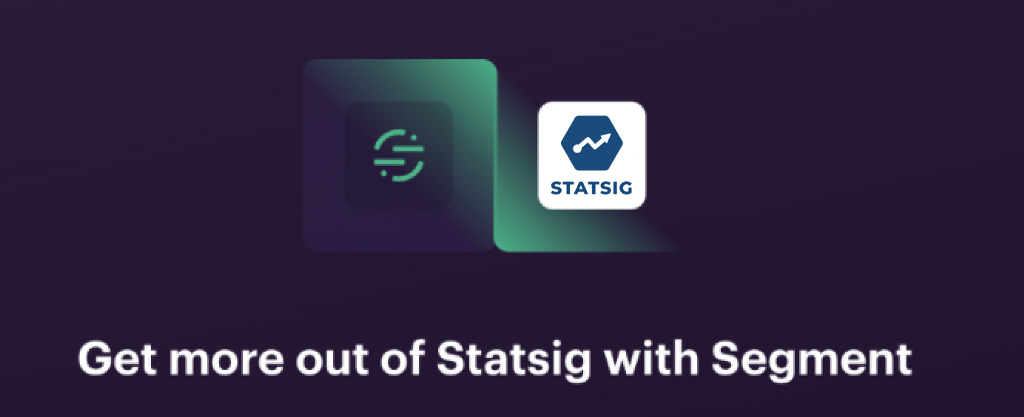
Get more value from your Segment events in minutes
Statsig can now be configured as a Destination within Segment to automatically ingest any of your Segment events. This allows you to bootstrap your Statsig environment easily, as all of the events you’ve been logging to Segment will start showing up in your Statsig experiments with no additional work.
How it Works
In your Segment console, click Add New Destination and search and add the Statsig Destination.

From here, follow the steps and configure your Destination with your preferences and providing your Statsig Server Secret. After that, go to your Statsig console and enable the Segment integration.

Once you’ve completed these steps, your Segment data will start arriving in Statsig! For more instructions follow the steps in our documentation.
What You Get
Pulse
For any current and future experiments run on Statsig, Statsig be able to provide comparisons for how your Segment events are affected by the test and control groups. This enables you to get a complete view of how the features you’re building and testing are affecting your ecosystem based on the metrics you’ve already logged.

Metrics
Your events will arrive in Statsig in real-time, allowing you to dive in and gather insights from your metrics by exploring historical trends or observing correlations between features you shipped and changes in event volumes.

Ultrasound
Find which features and experiments are causing the greatest positive or negative lifts in your Segment metrics with Ultrasound and identify which features to double-down on and which should be reconsidered.

Sign up and start using Statsig here and start getting more value from your Segment events!